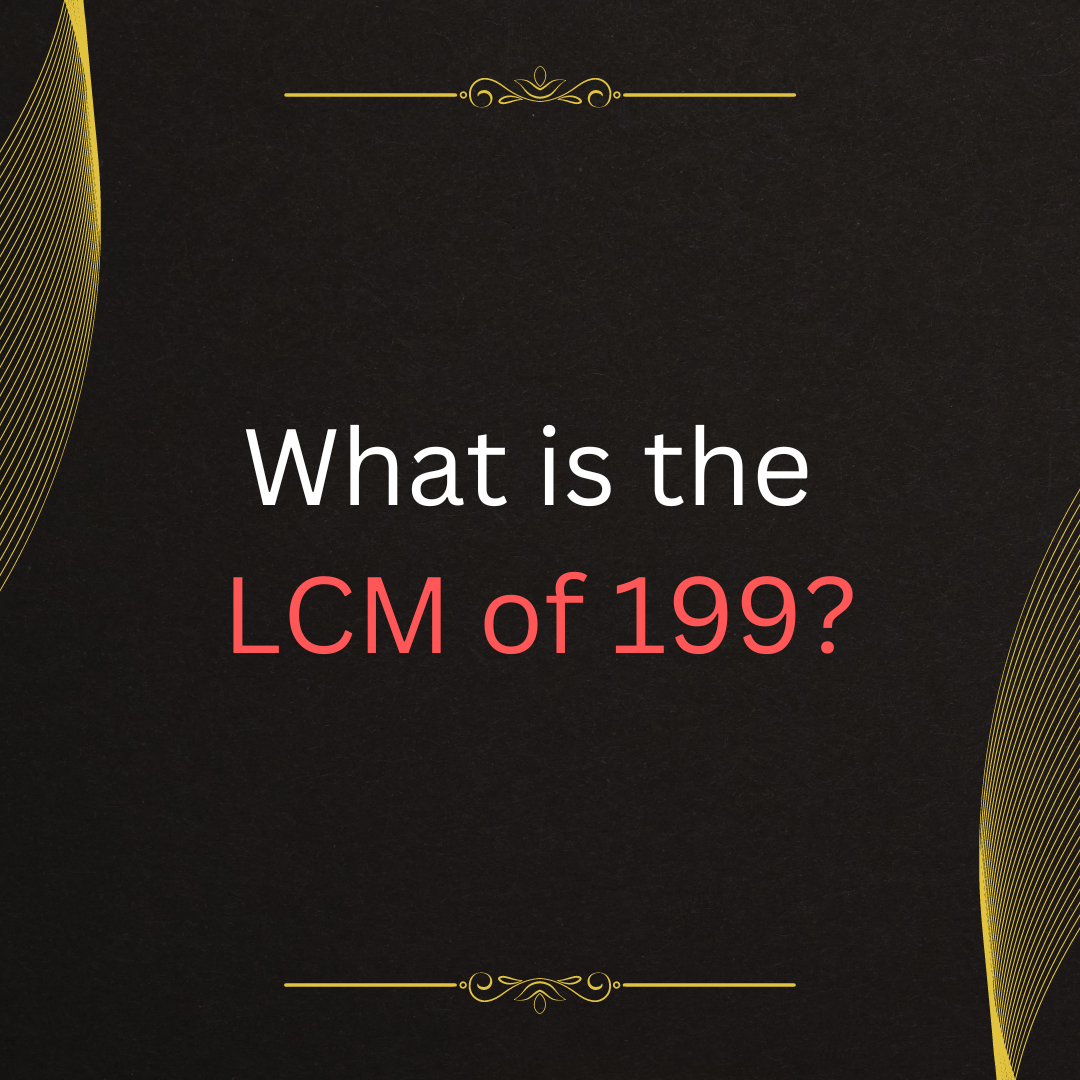Introduction to LCM
The Least Common Multiple (LCM) is a fundamental concept in mathematics, particularly in number theory and arithmetic. It is the smallest positive integer that is divisible by two or more given numbers. Understanding the LCM is crucial for solving problems involving fractions, ratios, and algebraic expressions. In this blog, we will delve into the concept of LCM, its importance, and how prime numbers like 199 play a role in simplifying LCM calculations.
Why We Calculate LCM?
Calculating the LCM is essential for several reasons:
- Simplifying Fractions: When adding or subtracting fractions with different denominators, finding the LCM of the denominators helps in converting them to a common denominator.
- Solving Diophantine Equations: These are equations that seek integer solutions, and the LCM is often used to find common multiples.
- Scheduling Problems: In real-life scenarios, such as scheduling events or tasks that repeat at different intervals, the LCM helps in determining when the events will coincide.
- Algebraic Applications: In algebra, the LCM is used to solve equations involving polynomials and rational expressions.
Is 199 a Prime Number?
Before we calculate the LCM involving the number 199, it is important to determine whether 199 is a prime number. A prime number is a natural number greater than 1 that has no positive divisors other than 1 and itself. To check if 199 is a prime number, we need to verify that it is not divisible by any number other than 1 and 199.
- Divisibility Test: We can test the divisibility of 199 by prime numbers less than its square root (approximately 14.1). The prime numbers to check are 2, 3, 5, 7, 11, and 13.
- 199 is not divisible by 2 (it is odd).
- The sum of the digits (1 + 9 + 9 = 19) is not divisible by 3.
- 199 does not end in 0 or 5, so it is not divisible by 5.
- Dividing 199 by 7, 11, and 13 does not yield an integer.
Since 199 is not divisible by any of these prime numbers, it is confirmed that 199 is a prime number.
What is the LCM of 199?
To find the LCM of 199 with another number, we use the prime factorization method. Since 199 is a prime number, its only prime factors are 1 and 199 itself. Let’s consider finding the LCM of 199 and another number, say 45.
- Prime Factorization:
- 199: (199)
- 45: (3^2 \times 5)
- LCM Calculation:
- The LCM is found by taking the highest power of all prime factors present in the numbers.
- Prime factors involved: 3, 5, and 199.
- LCM: (3^2 \times 5 \times 199 = 9 \times 5 \times 199 = 45 \times 199 = 8955)
Therefore, the LCM of 199 and 45 is 8955.
How Prime Numbers Like 199 Make LCM Calculations Straightforward?
Prime numbers simplify the process of finding the LCM because their only factors are 1 and the number itself. This means that when calculating the LCM involving a prime number, we only need to consider the prime number and the prime factors of the other number(s) involved.
For example, if we need to find the LCM of 199 and another prime number, say 17, the calculation becomes straightforward:
- Prime Factorization:
- 199: (199)
- 17: (17)
- LCM Calculation:
- The LCM is the product of the two prime numbers.
- LCM: (199 \times 17 = 3383)
In this case, the LCM of 199 and 17 is simply their product, 3383.
Conclusion – What is the LCM of 199
Understanding the LCM and its calculation is crucial for various mathematical and real-life applications. Prime numbers like 199 play a significant role in simplifying these calculations, making it easier to find common multiples. Whether you are dealing with fractions, scheduling problems, or algebraic equations, knowing how to calculate the LCM efficiently can save time and effort.
